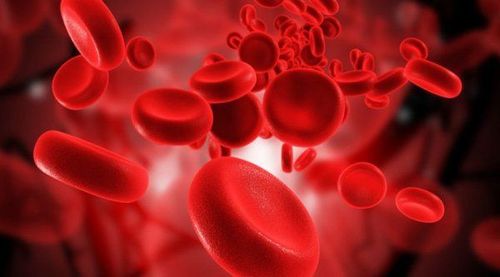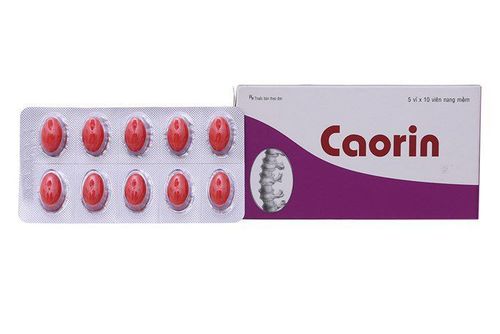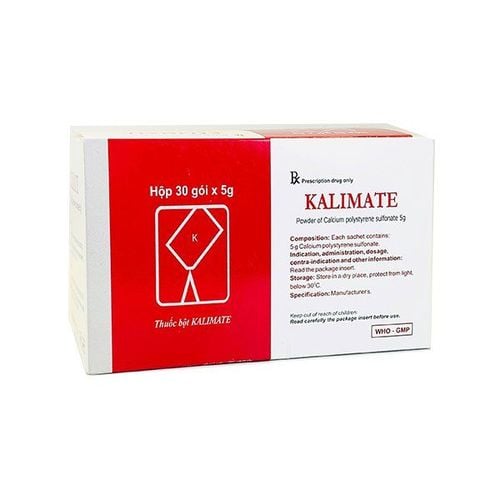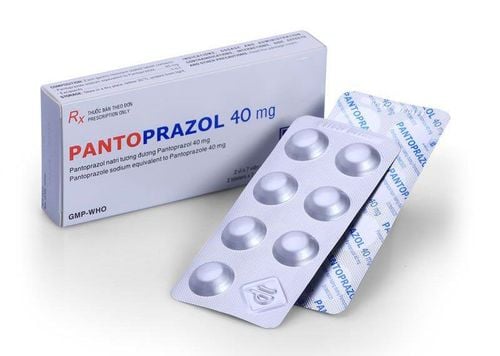This is an automatically translated article.
Article by Specialist Doctor II Nguyen Xuan Ninh - Emergency Resuscitation Department - Vinmec Central Park International General Hospital
The main symptom of hyperkalemia is muscle weakness. If your doctor suspects that you have hyperkalemia, he or she will order tests to confirm. The treatment and management of hyperkalemia will depend on the cause and extent of the disease.
1. What is hyperkalemia?
Hyperkalemia is the medical term for too much potassium in a patient's blood. In people with hyperkalemia, the body retains a lot of potassium. A person can develop hyperkalemia if their kidneys are not working well or as a side effect of certain medications.
Most medications used to treat high blood pressure or heart conditions can cause hyperkalemia :
ACE inhibitors : Examples include Enalapril, Captopril and Lisinopril; Angiotensin receptor blockers: Examples include Irbesartan (trade name: Avapro), Valsartan (brand name: Diovan) and Aliskiren (trade name: Tekturna) Aldosterone antagonists: Examples include spironolactone (brand name: Aldactone) ; certain beta-blockers, such as propranolol (trade name: Inderal) or labetalol (trade name: Normodyne); NSAIDs (non-steroidal anti-inflammatory drugs): You can buy some NSAIDs at pharmacies without a prescription. NSAIDs are a large group of drugs that include Ibuprofen (brand name: Advil, Motrin), Naproxen (brand name: Aleve) and Celecoxib (brand name: Celebrex),... Digoxin (trade name: Lanoxin).
2. Symptoms of Hyperkalemia
The main symptom of hyperkalemia is muscle weakness. Muscle weakness usually begins in the legs, then spreads between the body and arms. Hyperkalemia can also cause the heart to beat too slow or too fast, even causing cardiac arrest.

Tăng kali máu là 1 thuật ngữ y khoa cho trường hợp có quá nhiều kali trong máu của người bệnh
3. Is there a test to check for hyperkalemia?
If your doctor suspects that you have hyperkalemia, he will order tests to confirm. In addition to blood tests, your doctor may also assign you an electrocardiogram (ECG) to identify the effects of hyperkalemia on the heart, thereby providing appropriate treatment for hyperkalemia.
4. How is hyperkalemia treated? In most cases of hyperkalemia, your doctor will recommend changes in your diet or medication.
To treat hyperkalemia, you will need to eat a diet that is very low in potassium. This means that you need to eat more foods that are low in potassium (table 1) and eat less foods that are high in potassium (table 2). Your doctor will likely refer you to a dietitian who can help you plan low-potassium meals that work best for you.
If your hyperkalemia is caused by one of the medications you are taking, your doctor will consider reducing your dose or switching you to another product that is less likely to cause hyperkalemia.
Table 1: Low Potassium Foods

Table 2: Foods high in Potassium

4. Can hyperkalemia be prevented?
If you have kidney disease, you can reduce your risk of hyperkalemia by eating a low-potassium diet and following your doctor's prescriptions.
In addition, it is necessary to follow a healthy lifestyle, exercise regularly and periodically monitor health to screen for diseases effectively and safely. In case you are diagnosed, do not be too worried, calmly discuss with your doctor to find out the most appropriate and effective treatment for hyperkalemia.
Currently, Vinmec is implementing a lot of general health checkup packages suitable for each age, gender and individual needs of customers with very favorable price policy, including:
General health checkup package children Standard general health checkup package Special general health checkup package VIP general health checkup package Diamond general health checkup package The advantage of Vinmec's health checkup packages is that customers will be screened Health screening and screening by a system of modern equipment to help support the best diagnosis today such as PET/CT, MRI, CT 640 machines, the world's leading advanced ultrasound system, and laboratory systems international standard testing,... After a general examination, if any diseases are detected, customers can use services from other specialties at the hospital with outstanding quality of treatment.
References: Update - Patient education: Hyperkalemia (The Basics)














